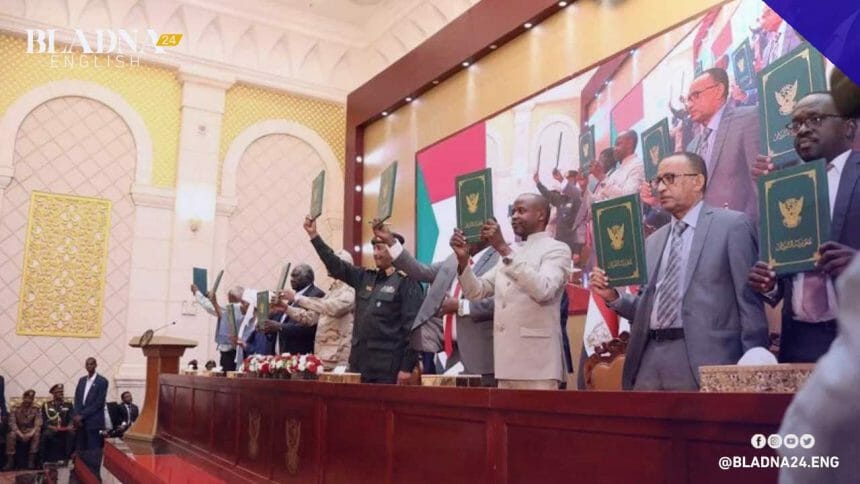Military and civilian leaders in Sudan signed the first agreement on Monday to end the political crisis. The agreement, welcomed by Washington and its allies, comes after multiple attempts to break the deadlock.
The framework agreement was signed by General Burhane, paramilitary commander Mohamed Hamdan Daglo and several civilian groups, including the Forces for Freedom and Change (FFC).
The document was negotiated in the presence of UN officials, Western diplomats as well as Saudi Arabia and the United Arab Emirates, according to the FFC.
The signing took place in the presence of UN Special Representative Volker Perthes and African Union Special Representative Mohamed Belaish.
“Today’s ceremony is the culmination of the ongoing efforts of Sudanese officials over the past year to find a solution to the political crisis and restore constitutional order,” Volker Perthes said.
The United States, Norway, the United Kingdom, the United Arab Emirates and Saudi Arabia have “welcomed” this agreement, described as “an essential first step towards the establishment of a civilian-led government and the establishment of constitutional provisions to guide Sudan through a transitional period leading to elections”
The initiative was immediately condemned by hundreds of Sudanese gathered in Khartoum.
Khartoum protester Muhammad Ali said: “We oppose this deal because it ignores street demands for justice for those killed since the coup.
On the other hand, General Burhane promised months ago that the military would be withdrawn from power and allow political groups to form civilian governments.
During the ceremony, General Daglo reiterated the military’s commitment to withdraw from the political arena, declaring that “it is imperative to build a sustainable democratic system.”
The agreement was announced on Friday after meetings with senior military officials and Forces for Freedom and Change and other political groups in the presence of officials from the African Union, the United Nations, IGAD and Western diplomats.
for the first Phase, the FFC said the framework agreement “lays the groundwork for the establishment of a civilian transition authority”, noting that other civil society groups have also signed it.
Phase two includes final agreements on issues such as a transitional justice system and military reforms, which the FFC said in a statement should be finalized “within the next few weeks.”
But this part is so troubling that observers have wondered if the Army would be willing to give up its economic interests and broader powers.
Kholood Khair, an analyst in Al Khartoum, said that the first phase of the deal would be “a very low-level commitment by Burhane that would allow him to survive politically.
But signatories “are likely to face a real political crisis once they start talking seriously about security sector reform, transitional justice (and) financial accountability,” she added.







